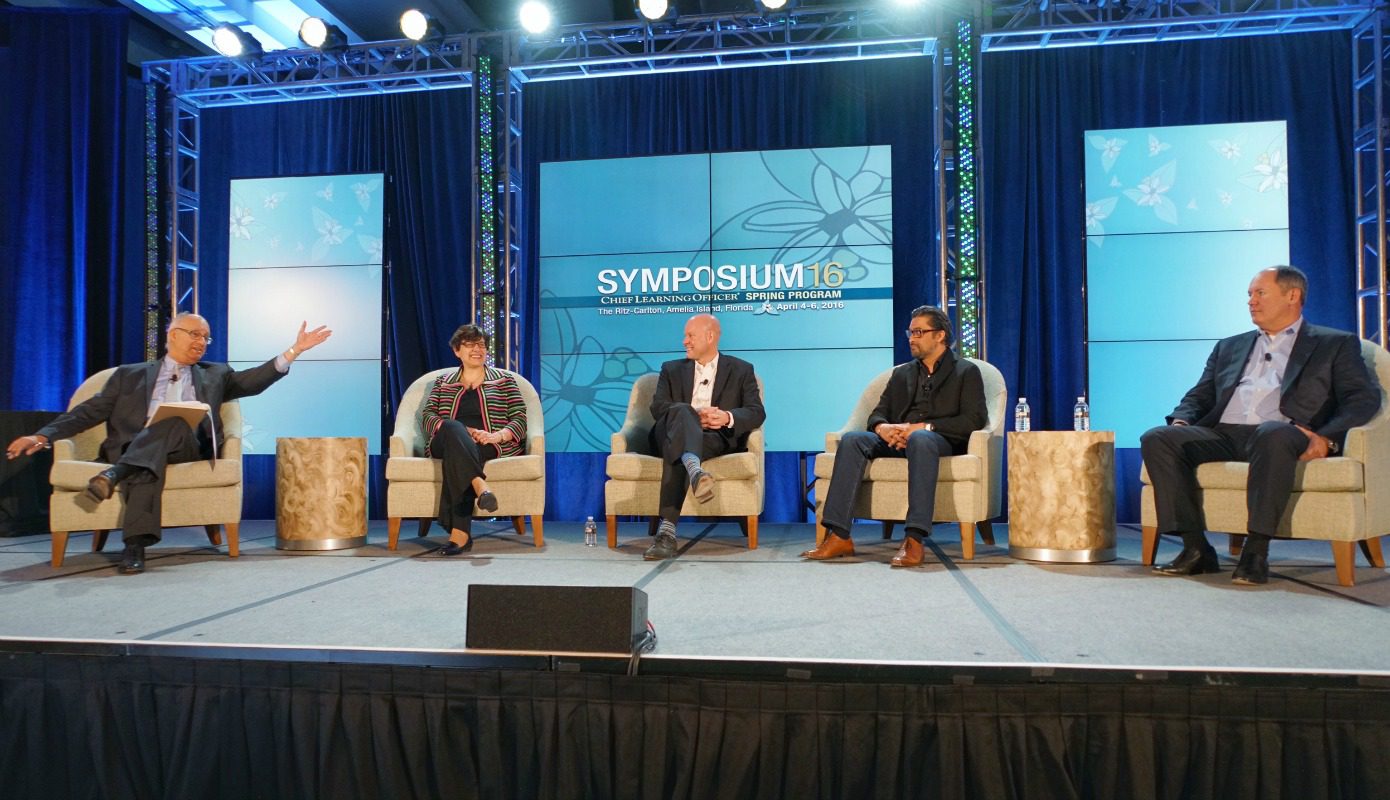
The great thing about the CLO Symposium — other than the nonstop learning and fun — is the random, always entertaining moments when controversy strikes. It’s never serious, and it never degenerates into an argument. But every once in a while, the conversation gets a little heated and hilarity ensues.
Case in point: On Day Two — April 5 on Amelia Island, Florida — Jeffrey Pfeffer took the stage, lobbed a few political comments into the audience. Kodak moments and shocked gasps spread like ripples in a pond. Apparently, Donald Trump mentions are too much even for the senior-level learning leader. Pfeffer, professor of organizational behavior at Stanford Graduate School of Business and author of “Leadership BS: Fixing Workplaces and Careers One Truth at a Time,” had some interesting ideas to share about the epic fail that is leadership development in many organizations.
The stats are dismal, tenures for leaders are getting shorter, and leaders’ effectiveness is shrinking faster than a sweater in the dryer. What stuck out in Pfeffer’s talk was the idea that charisma and inspiration aren’t necessarily great leadership traits. The ability to inspire, for instance, is about motivation, and motivation is quite temporary, he said. Instead, one should focus on data and measurement — more tangible things — rather than encouraging an organization to recruit and reward leaders for their ability to entertain.
Pfeffer’s talk echoed many of the ideas brought forth in the main panel discussion, which he moderated: “The New Face of Leadership: Open, Authentic, Transparent?” The panel featured a variety of CLOs — Rahul Varma from Accenture, Tim Tobin from Choice Hotels International, Lucy Dinwiddie from Bechtel Corp. and Rob Lauber from McDonald’s Corp. — who all embraced the idea that leadership is changing and that it has to for leaders to meet the increasingly fast and deep demands of modern business.
That change includes a shift toward the individual, and, in that context, organizational accountability is important. If organizations let certain leadership behaviors slide, the culture believes that behavior is OK. This gives wind to those leaders who subsequently make the front page of the newspaper or business magazine and trend on Twitter after their egos grow bigger than their performance.
In the end, there were no neon bright solutions revealed, despite a barrage of great insights and suggestions, and that’s not surprising; it’s a complicated issue. Dinwiddie openly admitted there is no magic answer to solve that disconnect between desired leadership behaviors and what companies reward. Who knows? It may be up to the learning leader to steer the proverbial ship in a new direction via development strategies that prioritize performance and prudence in leaders rather than personality.
Brian Robertson, author of “Holocracy: A New Management System for Purpose-Driven Organizations,” gave the afternoon keynote, sharing details about the management system that has companies like Zappos making real newsworthy changes in how they operate.
He described holocracy as a new way to play the game of work. It defines small, clear roles with clear power lines and clarifies boundaries, so employees know what freedom they have to act, and can act quickly without silos. It advocates a high level of autonomy and employee empowerment.
Robertson, also a serial entrepreneur, said the irony of empowerment is that if you need someone else to empower you, what does that say about the system you’re in? This turned the conversation neatly around to the real culprit or driver for this kind of organizational change: the organization itself. People learn a certain way to be within a company because of the company’s culture. They won’t try new things or contribute new ideas if the culture they must operate in does not encourage such behavior.
That makes sense. A company’s culture has just as much power an authority as the leaders in power, perhaps more. Those unspoken rules or norms we often hear about in culture conversations can be almost as tangible as written company policies. Even after a leader makes their exit, an organization’s culture can prove remarkably tough to change, continuing to chug along, belching smoke and tar into the air that filters down to land on all who work there.
Of course, even challenging conversations can’t keep good learning leaders down. The sense of camaraderie, the desire to share ideas, not to mention high spirits as congratulations echoed the halls of the Ritz-Carlton for the LearningElite winners revealed in a gala the night before, kept things uber upbeat.
Stay tuned. Things really got happy on day three of the Spring 2016 CLO Symposium, and we’ve got the highlights coming soon.
Kellye Whitney is Chief Learning Officer’s associate editorial director. Comment below, or email editor@CLOmedia.com.














